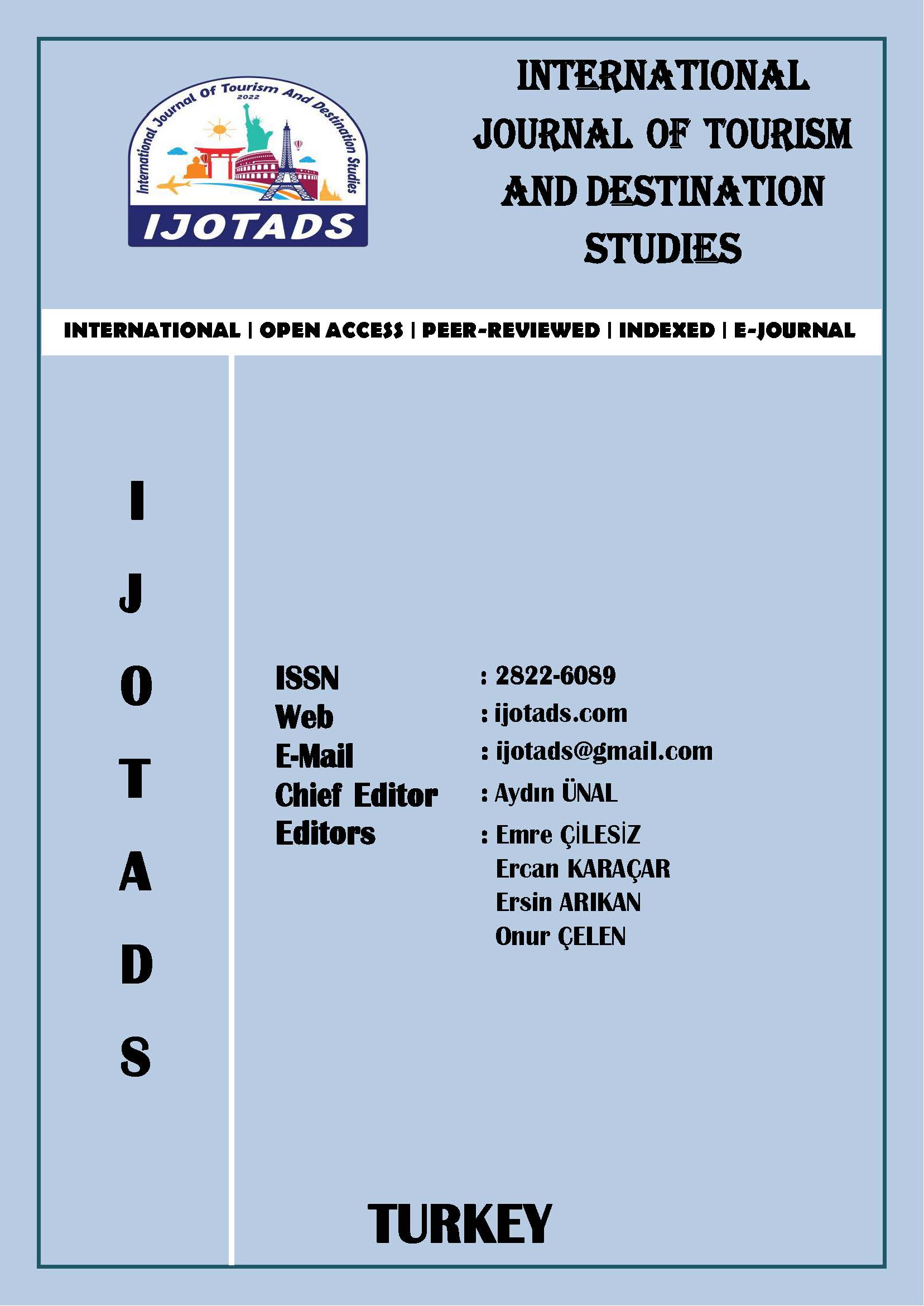Author :
Abstract
İnsanoğlunun yaşam gereksinimlerinin karşılanmasında doğadan elde edilen ürünler, yalnızca beslenme kaynağı olmanın ötesinde halk hekimliğinde şifa kaynağı, 21. yüzyılda ise turizm ve rekreasyon aktivitelerinin bir parçası haline gelmiştir. Doğal bir çevrede, geleneksel yöntemlerle yapılan arıcılıktan; bal, polen, bal mumu, arı sütü, propolis ve arı zehri gibi ürünler elde edilmektedir. İlk çağlardan bu yana bal ve bal ürünleri çeşitli tedaviler için kullanılmıştır. Günümüzde apiterapi yani bal arıları ve ürünleri ile şifalandırma, tıpta doğal bir şifa hapı olarak görülmektedir. Apiterapi ile sağlığı koruma, güçlendirme, dolaşımı iyileştirme, iltihabı azaltma, dişeti hastalıklarının tedavisi, canlılık ve güç kazanımı sağlanabilmektedir. Arıcılık ve apiterapi turizm ile ilişkilendirilmektedir ve sağlık turizminin bir parçası olarak görülmektedir. Doğal yaşam ve doğadan gelen şifayı almak isteyen bireyler; ekolojik bir çevrede, bal arısı ve ürünlerinin elde edilişini izleme, tadım yapma, sağlığını kazanma ya da koruma amacıyla eşsiz deneyimler ve keşifler için api turizm faaliyetlerine katılmaktadırlar. Çalışmada; bal arısı ve ürünlerinin geçmişten günümüze insanoğlunun hayatındaki yeri ve önemine dikkat çekilmesi amaçlanmış, api turizmin olumlu etkileri; sosyo-kültürel, sosyo-ekonomik, sosyo-psikolojik ve çevresel boyutlar altında ortaya konmaya çalışılmıştır. Api turizmin; sosyo-kültürel, sosyo-ekonomik, sosyo-psikolojik ve çevresel açıdan yarattığı olumlu etkileri nedeniyle turizm pazarında, özel ve ayrıcalıklı bir yerde bulunduğu tespit edilmiştir. Ancak planlı ve kontrollü biçimde geliştirilecek api turizm faaliyetlerinin söz konusu olumlu etkileri yaratabileceği aksi halde sosyal, ekonomik, çevresel ve psikolojik olumsuz etkilerin geri döndürülemez hasarlara yol açabileceği muhtemel görülmektedir. Yapılan literatür taramasında, ulaşılan çalışmalar içerisinde, api turizmin olumsuz etkilerine odaklanmış bir çalışmaya rastlanmamıştır. Ek olarak arıcılık faaliyetleri ile ön plana çıkan yerlerde api turizm potansiyelinin planlı bir biçimde değerlendirilerek, gerek niş bir pazar olarak gerekse diğer turizm çeşitlerinin tamamlayıcısı olarak geliştirilebileceği sonuçlarına ulaşılmıştır.
Keywords
Abstract
Products derived from nature to meet people's life needs have become a source of healing in folk medicine, a part of tourism and recreation in the 21st century, and not just as a source of food. Products such as honey, royal jelly, pollen, propolis, beeswax, and bee venom are obtained from beekeeping, which is carried out using traditional methods in a natural environment. Since ancient times, honey and honey products have been used for various treatments. Today, apitherapy, that is, healing by honeybees and their products, is seen as a natural healing pill medicine. With apitherapy can be achieved health protection, strengthening, improvement of blood circulation, reduction of inflammation, treatment of gum disease, vitality and strength. Beekeeping and apitherapy are connected with tourism and are seen as part of health tourism. Health tourists who want to get natural life and healing from nature participate in apitherapy activities to have unique experiences and discoveries in an ecological environment, to observe the production of honey bees and their products, to taste, to recover or protect their health. In the study, which was adopted by the qualitative research method, data were collected from various sources (books, journals, articles, theses, legal texts, newspapers, etc.) by making document analysis. This study tries to draw attention to the place and importance of honeybees and their products in people's lives from the past to the present, and to show the positive effects of apitourism from socio-cultural, socio-economic, socio-psychological and ecological aspects. Apitourism; it has been determined that it has a special and privileged place in the tourism market due to its positive effects on socio-cultural, socio-economic, socio-psychological and environmental aspects. However, it is possible that api tourism activities that will be developed in a planned and controlled manner can create such positive effects, otherwise negative social, economic, environmental and psychological effects may cause irreversible damages. Among the studies reached in the literature review, no study focused on the negative effects of api tourism has been found. In addition, it has been concluded that api tourism potential can be evaluated in a planned manner in places that come to the fore with beekeeping activities, and that it can be developed both as a niche market and as a complement to other tourism types.
